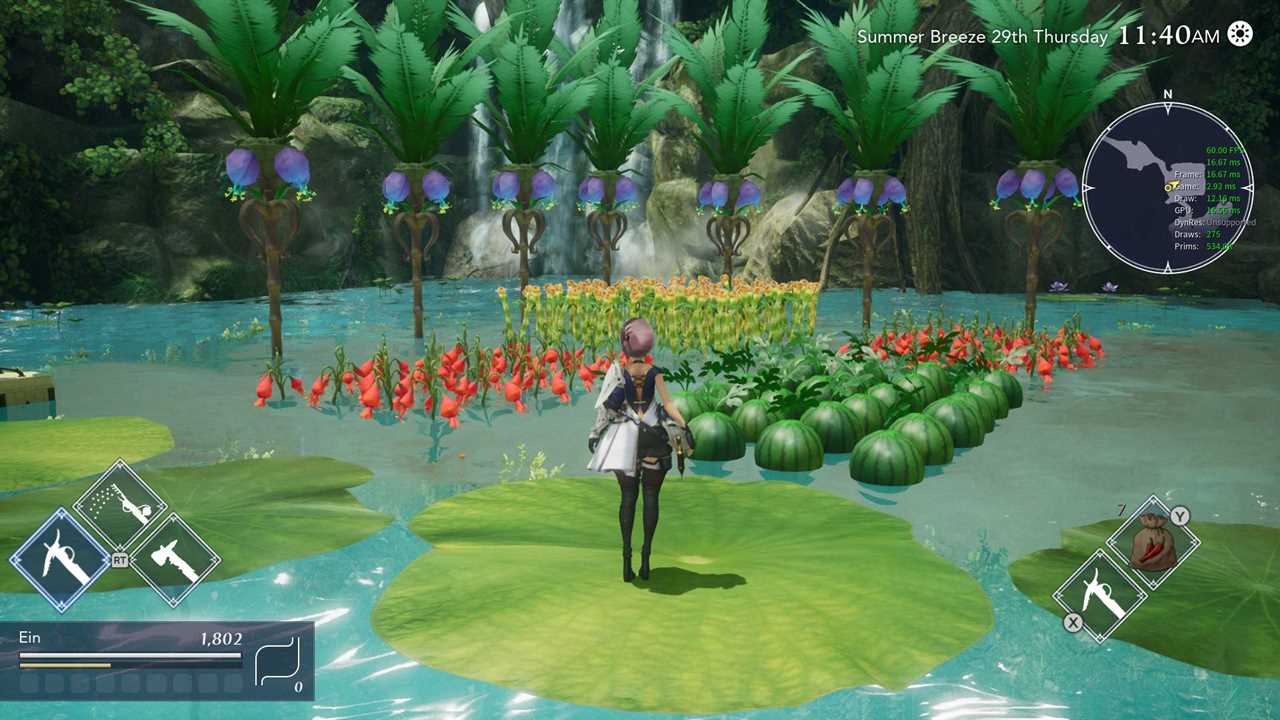MIXING together two wildly different genres often makes for great games.
Persona is one of the best examples, as there’s nothing more relaxing than coming back from an intense session of dungeon crawling to hang out with your confidants and increase your social skills.

Harvestella mixes a Final Fantasy-style game with a classic farming sim.
When done right, the shift in tone stops you from getting bored and keeps you hooked for longer.
That brings us to the newly released Harvestella on Nintendo Switch and PC via Steam, which mixes together a story-driven action RPG with a relaxing farming sim.
It’s a concept that I was immediately hooked by, as I’m a big fan of both of those things – I’ve got as many hours in Stardew Valley as I have in Xenoblade Chronicles, so putting them together sounds perfect.
However, the problem with doing two things at once is that, for it to succeed you need to find a way to make both work in harmony, which is something Harvestella doesn’t quite manage.
The problem is that, unless you’re determined to primarily focus on the farming side of the game, the RPG side is going to completely overwhelm things because it’s by far the deeper part.
There’s nothing wrong with the farming mechanics, but it feels like it only does the basics.
You’ve got a variety of crops that require different amounts of care, and as you progress you can process these crops in new ways to slowly make more money and grow your farming empire.
You can buy animals, craft machines, expand your land – everything you’d expect – but that’s it.
The biggest issue is that it has very little bearing on the RPG side of things.
It serves as an income stream, which is nice, but would it really be any different if that money came from the monsters you kill instead?
The only other major impact it has is that you have a stamina bar and a hunger meter. You can use some of the produce from your farm to deal with your hunger, health, or status effects.
With all that said, if you want a decent farming sim but don’t have the patience to play something as deep as Stardew Valley, then this might be what you’re looking for.
As you progress through the story you get enough farm-related objectives to keep you busy, but it only works if you’re not that bothered about the RPG that the game clearly wants you to focus on.
Speaking of the RPG, it’s fun, but an acquired taste.
As you gain new companions and get further into the story you’ll unlock a wide set of different jobs that all level separately.
You can select three jobs to switch between freely in battle, giving you a lot of different options.
On top of that, it lets the game throw a good variety of enemies at you without having to worry about what you can and can’t handle.
The combat itself is fine. It’s not particularly flashy or intricate, but you will have to pay close attention, striking a strategic balance between playing defensively and going in for the kill.
It can be quite punishing in the early game as your ability to do simple things like dodge is restricted, but once you get a few notches into the skill tree, it becomes a lot more fun.
Story-wise, there isn’t anything special going on here. My main complaint is that all the characters seem too similar.
Aside from a few antagonists, everyone has the same tone when they talk, nothing differentiates them or makes them stand out to me.
There are cool designs and useful allies, but they never gave me enough to latch onto personality-wise.
There’s a decent mystery at the heart of the game though, which compelled me enough to want to see it through.
Ultimately, I don’t really know who Harvestella is for. I found it perfectly enjoyable, but the two sides of the game don’t blend or enhance each other in any meaningful way.
If you’re a big fan of farming sims, then you’ll want something you can really sink your teeth into and spend hours on in one sitting.
Similarly, if you love action RPGs, you’ll want something intense and expansive.
Harvestella provides good versions of both these genres, but you’ll likely be left wanting more from both sides.
Written by Ryan Woodrow on behalf of GLHF.






